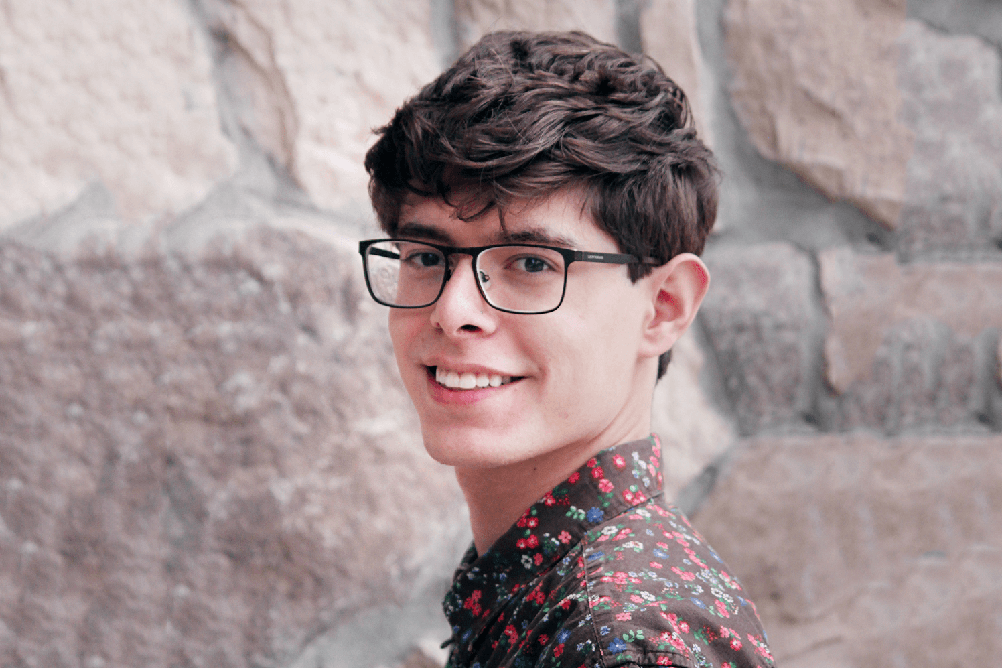 Herman Luis Chavez’s research looks at echoes of colonialism in the musical ideologies and institutions of late 20th century Bolivia. He looks at composer and musicologist Atiliano Auza León, understanding his works through postcolonial theory and placing them in the sociopolitical context of Bolivian arts at the time. He discovered León’s work while on a trip to Bolivia with his family.
Herman Luis Chavez’s research looks at echoes of colonialism in the musical ideologies and institutions of late 20th century Bolivia. He looks at composer and musicologist Atiliano Auza León, understanding his works through postcolonial theory and placing them in the sociopolitical context of Bolivian arts at the time. He discovered León’s work while on a trip to Bolivia with his family.
“I’m from Bolivia, my parents immigrated to the States, so we visited every now and again. On one of those visits that I did stumble across Atiliano Auza León’s piano sonatas just kind of looking through some of my music and it was a very big thing for me because up until this point I had only ever played classical compositions by Western composers,” said Chavez, a fourth-year ethnomusicology and comparative literature student.
After discovering that UCLA was one of the few universities with León’s work at their library and one of the only places with an ethnomusicology program, Chavez made the decision to transfer to UCLA so he could pursue this research. His faculty mentor, Dr. Cesar Favila, even met with him before transferring.
“[Dr. Favila] has been such an amazing mentor, [who] has connected me not only with the research that’s important for me to do and the literature for my thesis, but he’s also really helped me as a professional because I am hoping to pursue a PhD….He’s been really great at helping me find opportunities to develop as a scholar and as a professional in the world of academic music. He has not only been my thesis advisor, but more than that, he has been really a holistic mentor. For me it is really important as a professional because being a first generation American, I don’t know a lot about how the academies work,” said Chavez.
The research Chavez is pursuing is unique as there are very few people studying Bolivian music and culture, even fewer who don’t take a strictly musicological or ethnomusicological approach. He strives to increase the awareness and consciousness in music academia around Bolivian art composers. Through his research, Chavez even had the opportunity to interview León this past summer.
“My thesis looks at his published texts, his music, and also looks at this interview to kind of piece together a narrative of how Leon is composing the idea of Bolivia through the concepts of Mestizaje and Indigenismo which are the cultural mixing of races and ethnicities in Bolivia.”
None of this would have been possible without the generous donors of the Undergraduate Research Centers. By providing student and programmatic support, undergraduate researchers are able to thrive and make real academic impact.
“I don’t think I would be able to do this work without knowing that in it is a little easier on my tuition payments, right I’m getting financial support. That gives me the time to focus on my research,” said Chavez.
“I had access to the programs of URSP (Undergraduate Research Scholars Program) and MMUF (Mellon Mays Undergraduate Fellowship). That not only gave me the financial support to pursue my research but also the information that I needed to be successful. For example, in MMUF we get a lot of information about what is grad school, how do we apply to grad school, what is grad school like, what would it be like for us to be PhD students, what it what would it be like for us to continue this research on and become professors. They’ve given us panels, they’ve given us exercises. It’s not just about the thesis in that program, it’s about preparing students for graduate school who might not otherwise have access to that information,” said Chavez.
His experience with the URCs and his mentorship with Dr. Favila has prepared him for his goal of becoming a professor and has inspired him to give back to other students in the future.
“I don’t just want to do research, I want to teach, I care a lot about teaching. I never had a mentor or a Professor that I knew cared about me until I came to UCLA and I had Dr. Cesar Favila, until Dr. Favila was that person for me. And I want to be that person for other students in the future.”

